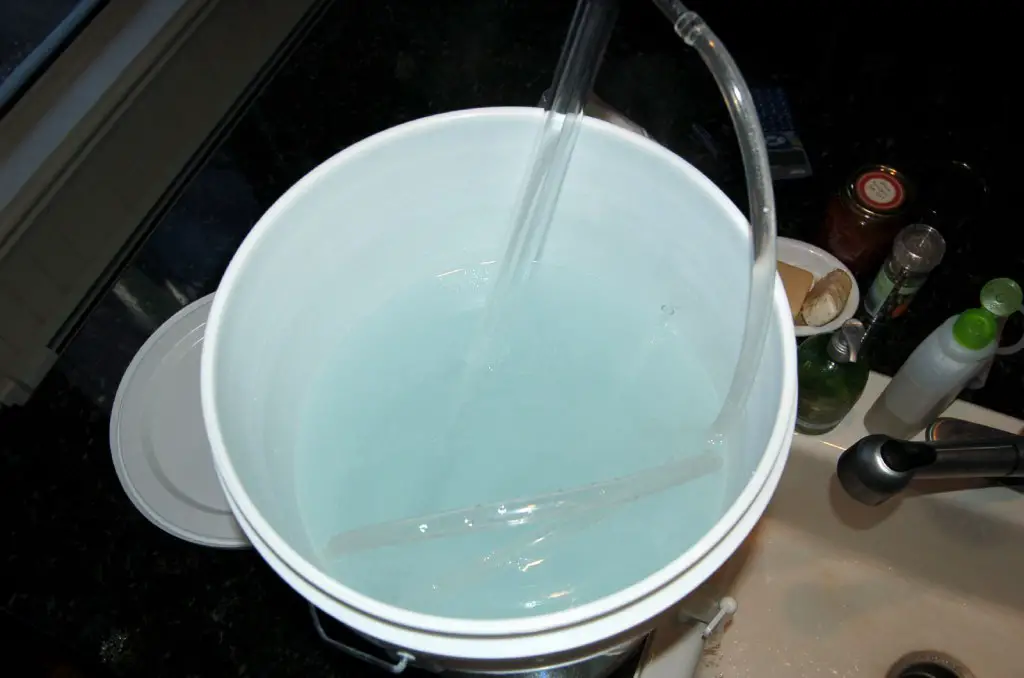There are a number of preventable mistakes that many home brewers make the first time that they produce a batch of beer. As a somewhat experienced brewer here are some of the main things that I wish I knew before I made my first homebrew. Here are seven things I wish I knew before I made my first homemade beer.
1) I needed to sanitize everything very carefully with a checklist
One of the first batches of beer that I made came out with a horrible skunky smell and a fairly plain flavor. What I found out later on was that I didn’t end up sanitizing the piping that I use during the bottling process. This actually ended up contaminating the beer as soon as it was added into the bottles which resulted in its poor smell and lack of flavor. For future batches of beer I was incredibly careful when it came to sanitizing my hands, my workstation and every component that was touching beer.

2) I was tasting too early
When I made so my first homemade beer it was really tempting to crack a bottle and try it early on. Waiting the right amount of time for fermentation and remaining patient is important. I definitely pulled my beer out of the fermenter way too early the first few times and I opened it early to try it too. I’ve learned that patience and consistent monitoring often leads to a far better result. Leaving the beer alone and letting it age is part of the process and it’s never something to rush.
3) I needed more precise temperature control
I made beer the first time and kept it in my basement so that the smell of fermentation didn’t make its way up into my house. The temperature swung around constantly as my basement was unfinished and I found out that in many cases my beer wasn’t fermenting properly. Because there wasn’t any type of adequate temperature control, my beer was spending far too much time in the fermentation process and it was difficult to actually predict when it would be ready. I have started to keep beer with a thermometer on it inside a spot in my kitchen so that it can have a much more consistent temperature.
4) I needed to watch the wort closely
On the second time that I was brewing beer I let the pot with my wort sit on the stove and come up to a boil. I didn’t catch it quite in time as I was watching TV and the pot had a chance to boil over causing a huge mess during the brewing process. Not only was it super sticky on the oven but the smell was horrible after it got on the burner. I watch the wort on the stove super closely and I make sure that I’m always using a large pot to avoid the chance that it might boil over again.
5) I didn’t pay attention to my water source
The first time I brewed beer I used water right out of the tap to fill up my carboy instead of purified water. Today I use only bottled water that’s been properly purified but the first time I figured that the heat from the wort process would remove any additives or impurities. The water source is extremely important to producing a better quality beer and it’s never a good idea to consider using tap water as there’s extra additives that can be found in its composition. All we sanitize first and then use the jurors filtered water that you can find. Even picking up a large jug of purified water is a huge step up from water you might get out of the tap.
6) I should have stuck to a simple recipe
The second time that I brewed beer, I went with a much more difficult recipe so that I could get a fresher result. I really wanted a different variety of beer that was closer to my local craft brewery. Following the methods of a more complicated recipe was much more expensive and I did so many things wrong that it didn’t come out in the best way when I tried to scale the recipe. I should’ve had patience and tried brewing the same simple recipe that I used my first time several times during the learning process.
7) I need to take notes and have a checklist
I’ve learned through many successful brews now that notes are essential. Keeping notes and checklist is one of the only ways that you can produce consistent results in brewing. The first few times that I was brewing beer, I was just looking at instructions and reading through the steps in a recipe. I was never logging what I was doing, the temperatures involved, the way that beer looked when I checked on it or the times that I was bottling a recipe. I found that the more information I log with any given recipe, the better results I can get. When I start to see consistent results with a recipe I might change it a little bit and now I’m sure to log everything along the way to show how it changes some of my favorite beer. I still run into bad batches every once and a while but with my checklist and notes, I can see exactly where I may have made a mistake and work to prevent it later on.
These are just a few of the top things that I have found through the process of brewing that have really helped me. I hope that these tips could help somebody else in the process of their first brew or as they are figuring out a process that works for them to maintain a better quality brewing experience at home.
